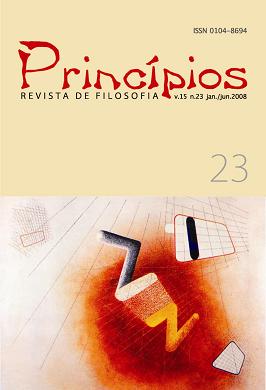Perspectivism and Intersubjective Criteria for Personal Identity: A Defense of Bernard Williams’ Criterion of Bodily Continuity
Resumo
In this article I revisit earlier stages of the discussion of personal identity, before Neo-Lockean psychological continuity views became prevalent. In particular, I am interested in Bernard Williams’ initial proposal of bodily identity as a necessary, although not sufficient, criterion of personal identity. It was at this point that psychological continuity views came to the fore arguing that bodily identity was not necessary because brain transplants were logically possible, even if physically impossible. Further proposals by Shoemaker of causal relations between mental states in our memory and Parfit’s discussion of branching causal chains created additional complications. My contention in this paper is that psychological continuity views deflected our attention from what should have remained in the spotlight all the time: the intersubjective character (or not) of criteria proposed to decide personal identity in our language game, and ultimately our form of life concerning ourselves as persons. B. Williams’ emphasis on the body was not just common sense. It was also recognition of the importance of giving priority to criteria that could be kept under intersubjective control.
Downloads
Downloads
Publicado
Como Citar
Edição
Seção
Licença
Autores mantêm os direitos autorais e concedem à revista o direito de primeira publicação, com o trabalho simultaneamente licenciado sob a Licença Creative Commons Attribution que permite o compartilhamento do trabalho com reconhecimento da autoria e publicação inicial nesta revista.
Termos da licença:
| Não Comercial (NC) | Os licenciados podem copiar, distribuir, exibir e executar a obra e fazer trabalhos derivados dela, desde que sejam para fins não comerciais. |
| Compartilha Igual (SA) | Os licenciados devem distribuir obras derivadas somente sob uma licença idêntica à que governa a obra original ou menos restritiva. |


 Português (Brasil)
Português (Brasil) English
English Español (España)
Español (España) Français (Canada)
Français (Canada)


